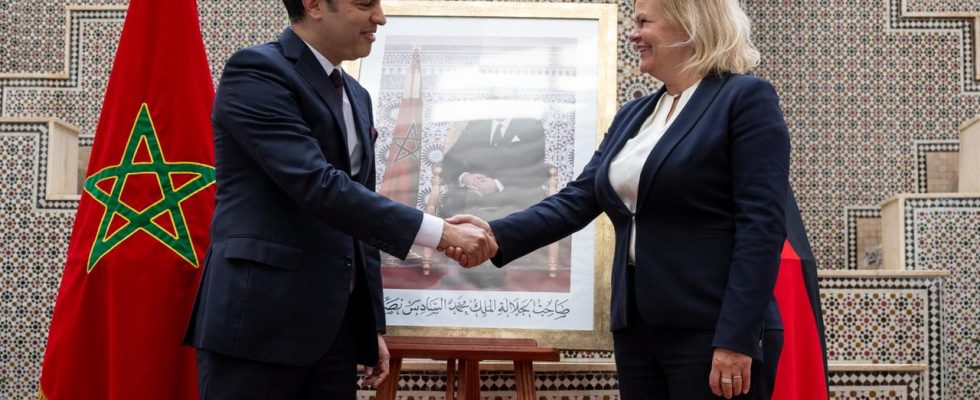The new skilled worker immigration law in Germany has come into force. An opportunity also for young Moroccans who lack career prospects. The country emphasizes that it needs young people itself.
The Goethe-Institut in Rabat, Morocco’s capital. Young Moroccans in particular are studying German here. Your goal:
“I would like to do my specialist training in Germany.”
“As a doctor, I would like to continue my training there.”
“I want to train as a nurse.”
Advertisements for German language courses have been seen on the streets of the Moroccan capital for years. In cafés, taxis or at the market you often meet young people who understand German. Germany has become attractive as a target country, while both the French language and the ex-colonial power France are losing influence and interest.
Difficult situation for young people
The high youth unemployment in Morocco and the lack of economic prospects are the reasons why young Moroccans dream of training, studying or getting a job in Germany, says sociologist Rachid Touhtou. He speaks of a high percentage of young Moroccans who are unemployed. “I think the number now officially fluctuates between 10 and 12 percent of young people between the ages of 19 and 25 who are hanging around on the streets with a diploma and a lot of skills,” said Touhtou.
The expert sees “simply no possibility of working” because the Moroccan labor market is saturated. The government cannot create more than 20,000 jobs per year. And to get into the private sector, you need a lot of vitamin B. “This leads to many young people from poor urban areas or rural areas leaving their cities and villages and emigrating to Europe.”
Faeser traveled to Morocco for talks
If this happens irregularly, it is a political issue in Germany. It was only at the end of October that Federal Interior Minister Nancy Faeser traveled to Morocco, together with Joachim Stamp, the special representative for migration agreements. According to the minister, her focus is legal migration. “With the Skilled Immigration Act, we have made a complete change in migration policy, which will soon result in legal migration through labor market migration,” said Faeser. “And on the other hand, to ensure that we can repatriate and deport a lot more, and we have laid the foundations for this.”
Specifically, this means: Morocco should take back citizens who are required to leave the country more quickly. Moroccan workers should have privileged access to the German labor market – additional support with language courses, further training and easier recognition of professional qualifications. Particularly in view: the care sector.
In Morocco, there have been repeated complaints in the past that citizens have to wait a long time for appointments at the German consulate and then for their visa, if they receive it at all. Nevertheless, the German minister received a remarkably warm welcome from Labor Minister Younes Sekkouri in October. But he noted: Morocco itself needs doctors and engineers. At the same time, it also has the opportunity to offer young people job prospects abroad that are currently not sufficiently available locally.
“Migrants boost our economy”
What Sekkouri didn’t say: Moroccans who live abroad are an enormously important economic factor for Morocco, explains sociologist Touhtou. Migration is not just there to save yourself. “These people save their entire family. So it’s a family decision. The young people take responsibility, send money to parents, their children, and help them lead a better life.”
According to Touhtou, the transfers amount to around ten billion euros, which is the second largest source of income after tourism. “This shows you what these remittances mean,” he says. “Our migrants around the world are boosting our economy.” In the best case scenario, this could be a win-win situation for Morocco and Germany, says the sociologist. Even if Morocco would initially lose urgently needed skilled workers.
Dunja Sadaqi, ARD Rabat, tagesschau, November 19, 2023 12:46 p.m

